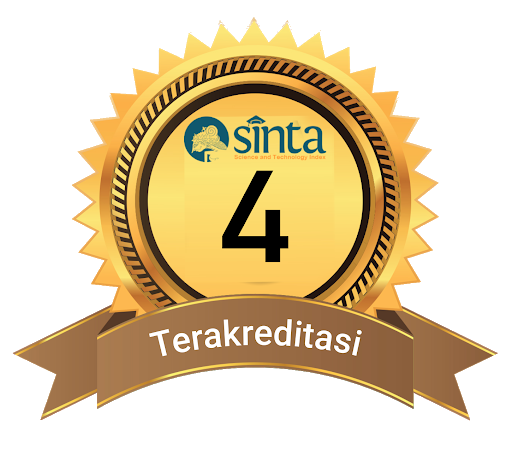EKSISTENSI PONDOK PESANTREN DI TENGAH KEMODERNAN PESANTREN
Abstract
Full Text:
Download PDF (Bahasa Indonesia)References
Arief, Armai, Cet. 1. 2002. Pengantar Ilmu dan Metodologi Pendidikan Islam. Jakarta: Ciputat Pers. Assegaf, Abdurrahman. 2013. Aliran Pemikiran Pendidikan Islam. Jakarta: Rajawali Pers. Azra, Azyumardi 2012. Pendidikan Islam; Tradisi dan Modernisasi di Tengah Tantangan Milenium Baru. Jakarta: Kencana. Barizi, Ahmad. 2011. Pendidikan Integratif; Akar Tradisi dan Keilmuan Pendidikan Islam. Malang: UIN Maliki Press. Depdikbud. Ed. 2. 1994. Kamus Besar Bahasa Indonesia. Jakarta: Balai Pustaka. Mastuhu. Cet.1. 1994. Dinamika Sitem Pendidikan Pesantren. Jakarta: INIS. Daulay, Putra Haidar. 2009. Sejarah Pertumbuhan dan Pembaruan
Pendidikan Islam di Indonesia. Jakarta: Kencana. Salim, Peter dan Yenny Salim, Ed.1. 1991. Kamus Besar Bahasa Indonesia Kontemporer. Jakarta: Modern English Press. Tatang. (2012). Ilmu Pendidikan. Bandung: Pustaka Setia. Utomo, Wahyu. Cet.1. 1997. Perguruan Tinggi Pesantren Pendidikan Alternatif Masa Depan. Jakarta: Gema Insani Press. Zuhairini,dkk. Cet.8. 1983. Metode Khusus Pendidikan Agama. Surabaya: Usaha Nasional. Bina Pesantren. Ed. 2. (2006). Media Informasi dan Artikulasi Dunia Pesantren. Jakarta Selatan. Taruna, Mudis Mulyani. (2013). Manajemen Pendidikan Ma’had ‘Aly di Lingkungan Pondok Pesantren: Kasus Ma’had ‘Aly Hasyim Asy’ari Tebuireng, Jombang. Edukasi: Jurnal Penelitian Agama dan Keagamaan, 11 (2). Ngatawi, El-Zastow. (2006). Dialog Pesantren Barat: Transformasi Dunia Pesantren. Jakarta: Departemen Pendidikan Diniyah dan Pondok Pesantren. Jurnal Pondok Pesantren: Mihrab Komunikatif Dalam Berwacana, 1 (IV).
Susanne, Kreitz-Sandberg. (2013). Gender Inclusion and Horizontal Gender Segregation: Stakeholders’ Strategies and Dilemmas in Swedish Teachers’ Education.
Sweden: Department of Behavioural Science and Learning, Linköping University, Linköping.
DOI: http://dx.doi.org/10.31958/jeh.v4i2.2013
Refbacks
- There are currently no refbacks.
Copyright (c) 2020 Khairurrijal Khairurrijal

This work is licensed under a Creative Commons Attribution-NonCommercial 4.0 International License.
El-Hekam Indexed By:














